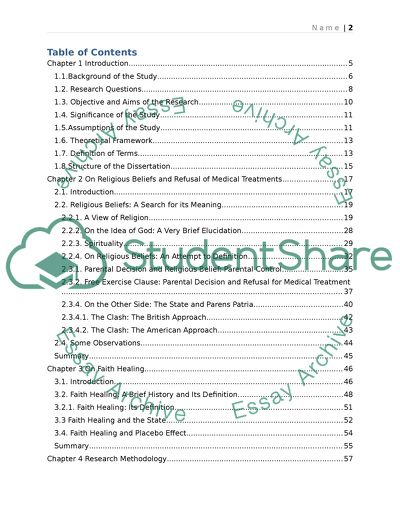Faith Healing and the government should it be protected or monitored Dissertation. Retrieved from https://studentshare.org/religion-and-theology/1473113-faith-healing-and-the-government-should-it-be
Faith Healing and the Government Should It Be Protected or Monitored Dissertation. https://studentshare.org/religion-and-theology/1473113-faith-healing-and-the-government-should-it-be.


